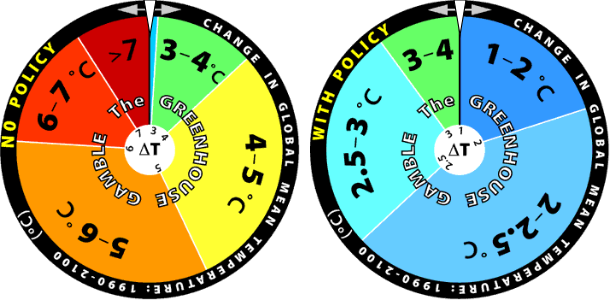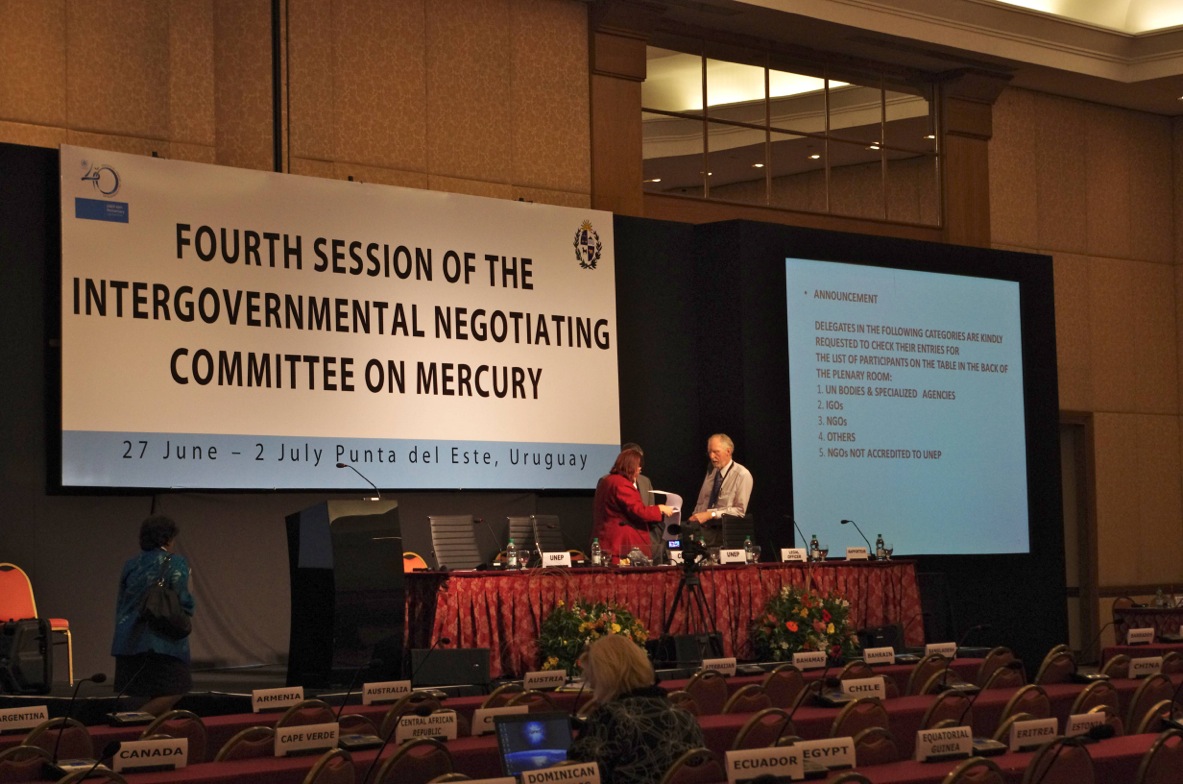Research Spotlight

The MIT Joint Program on the Science and Policy of Global Change
The Greenhouse Gamble™ wheels were developed by the MIT Joint Program on the Science and Policy of Global Change to better convey uncertainty in climate change prediction. The roulette-style spinning wheels depict the estimated probability, or likelihood, of potential temperature change (global average surface temperature) over the next 100 years. The face of each wheel is divided into colored slices, with the size of each slice representing the estimated probability of the temperature change in the year 2100 falling within that range.
Learn more about how to interpret the Greenhouse Gamble™ wheels here
Learn more about the Joint Program on the Science and Policy of Global Change here.



